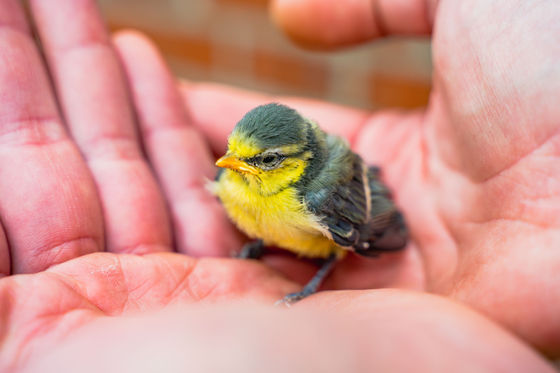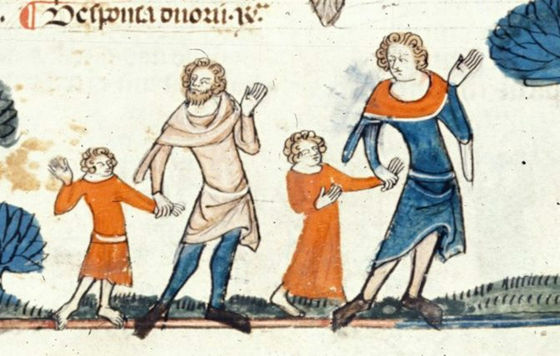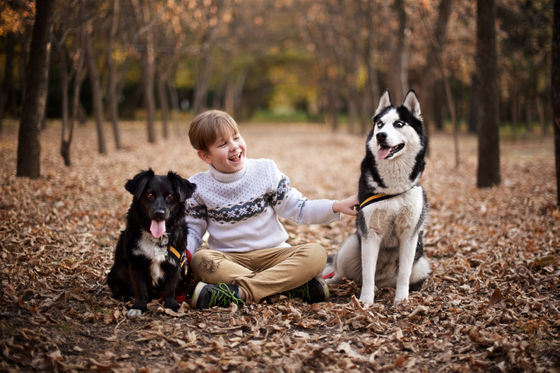Five simple words, like 'boy' and 'dog,' whose origins are unclear and have puzzled linguists

'Mother' in English is similar to 'mutter' in German and 'māter' in Latin. Linguists can
Five common English words we don't know the origins of – including 'boy' and 'dog'
https://theconversation.com/five-common-english-words-we-dont-know-the-origins-of-including-boy-and-dog-232299
◆1: Bird
Perono Cacciafoco explains that 'bird' has Germanic phonetic elements but no cognates in other Germanic languages. In Old English, the word was used as a rare variant of 'bridd,' meaning 'baby bird.'
On the other hand, the common bird was called 'fugel' in Old English, which is the modern English word 'fowl'. Also, until the 15th century, 'bird' was used not only for birds, but also for young animals in general, as well as for fish and human children.

◆2: Boy
It is unclear who or what 'boy' originally referred to. In the 13th century, the word 'boie' was used to refer to a servant, and about a century later it came to be used to mean a boy, but the origin of this word is also unknown.
The word does not have a Germanic sound to it, but whether it was brought to England by the Normans rather than the Germanic people is also unclear.
According to one theory, the word originates from the Vulgar Latin 'imboiare' meaning 'slave' and is related to the word 'boia' meaning a collar or yoke for livestock. The asterisk (*) next to 'imboiare' indicates that it is a reconstruction based on comparative law and is not based on any concrete source.

Royal MS 10 E IV f.311v / The British Library
◆3: Girl
The word 'gyrle,' from which 'girl' is derived, has been used since the 14th century to mean a child, regardless of gender. Like 'boy,' it is a simple word at first glance, but the origin of this word is unknown.
Some scholars speculate that, due to its connection to the Old English word 'gierela' meaning clothing, the word 'gierela' may have simply come to mean a child, a type of apron-like garment worn by children.
Scholars are divided on the issue, however, as some believe that 'girl' may have come from other words that are no longer associated with it, such as 'boy,' 'lass,' or 'lad.'

◆4: Dog
'Dog' comes from the Old English 'docga,' an unusual word that later came to be used in
Originally, the common Germanic word 'hund' was used in Old English to refer to a dog, but in the 16th century it was replaced by 'docga.' In modern English, 'hund' has become 'hound,' meaning a hunting dog.
However, the origin of 'docga' is unknown, and there is no Old English word that is related to it. Perono Cacciafoco speculates that the breed may have become so common that it represented dogs in general, but this is still speculation.
Perono Cacciafoco described the completely clueless word 'dog' as 'a true mystery in English lexicology .'

There are several other animal-related words in English whose origins are unclear, such as 'pig,' 'hog,' and 'stag.' Another word with an unclear origin is 'perro,' the Spanish word for dog.
◆5: Recorder (recorder/vertical flute)
'Recorder' is a bit different from the previous four in that it is derived from the Middle French verb 'recorder,' meaning 'to repeat' or 'to remember,' and ultimately from the Latin 'recordari.'
So the mystery is why this word came to mean a type of vertical flute, i.e., a recorder, rather than a recording device. In Italian, a recorder is called 'flauto dolce,' in French 'flûte à bec,' and in German 'blockflöte,' all of which are words similar to the flute.

The recorder's first recorded appearance was in a list of instruments owned by the King of England in 1388.
In this Latin list, the recorder is written with an initial capital letter, as if it were a proper noun: 'i. fistula nomine Recordour' (the pipe called Recordour). In contrast, in 15th century England, the Lord Justiciar of a town was written with a lowercase initial 'recordour.'
There are various theories about how 'recorder' came to mean a flute, including one that suggests it was due to the association of the sound with the song of a bird. While bird songs are indeed repetitive and 'recorded,' that is, you can hear the repeated sounds, Perono Cacciafoco believes this explanation is a bit far-fetched.
As a linguist, Perono Cacciafoco has been investigating the origins of the words 'ocarina' and 'gemshorn' (an ocarina-like flute made from a buffalo horn), and his next subject is the recorder.
'If we can reconstruct the story of the origin of these indigenous words, it may tell us a lot about our ancestors, how they thought, and the cognitive strategies they used to name the things around us,' Perono Cacciafoco said.
Related Posts:
in Note, Posted by log1l_ks







